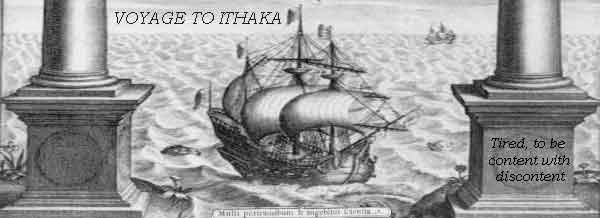Roman de Fauvel
Remembering John Fauvel (1947-2001)
More Early Music today, starting with Fretwork performing Agricola (although the programme notes talked about Agricola as an instrumental composer, it was the chansons, beautifully sung by Michael Chance, that I liked best). Fretwork also played their share of Fabrice Fitch's Agricologies , which were entertaining and appropriate. Fitch was inspired, curiously enough, by David Smith's sculptures using found farm implements, which Smith called Agricola. This was followed by more beautifully singing, Emma Kirkby and Anthony Rooley performing Dowland to illustrate an interesting talk by Rooley: sadly a broken lute string deprived us of all but the first verse of the last sing.
But the big event of the day was The Clerks' Group, performing music from a manuscript of the early fourteenth century satirical poem, the Roman de Fauvel. This was performed with an excellent modern version written by Ian Duhig. Fauvel is a horse, named acrostically after his vices (Flaterie, Avarice, Vilanie, Varieté, Envie, Lascheté). Raised by blind Fortune from the stable, he hopes to marry Fortune to ensure his continued good luck, but instead marries her daughter Vainglory. All the courtiers are anxious to curry the powerful Fauvel, hence the English phrase "to curry favour".
Ironically, the disreputable Fauvel shares his name with one of the people I have most admired. John Fauvel was a historian of mathematics who inspired us all and was universally loved. His influence continues.
More Early Music today, starting with Fretwork performing Agricola (although the programme notes talked about Agricola as an instrumental composer, it was the chansons, beautifully sung by Michael Chance, that I liked best). Fretwork also played their share of Fabrice Fitch's Agricologies , which were entertaining and appropriate. Fitch was inspired, curiously enough, by David Smith's sculptures using found farm implements, which Smith called Agricola. This was followed by more beautifully singing, Emma Kirkby and Anthony Rooley performing Dowland to illustrate an interesting talk by Rooley: sadly a broken lute string deprived us of all but the first verse of the last sing.
But the big event of the day was The Clerks' Group, performing music from a manuscript of the early fourteenth century satirical poem, the Roman de Fauvel. This was performed with an excellent modern version written by Ian Duhig. Fauvel is a horse, named acrostically after his vices (Flaterie, Avarice, Vilanie, Varieté, Envie, Lascheté). Raised by blind Fortune from the stable, he hopes to marry Fortune to ensure his continued good luck, but instead marries her daughter Vainglory. All the courtiers are anxious to curry the powerful Fauvel, hence the English phrase "to curry favour".
Ironically, the disreputable Fauvel shares his name with one of the people I have most admired. John Fauvel was a historian of mathematics who inspired us all and was universally loved. His influence continues.



0 Comments:
Post a Comment
<< Home